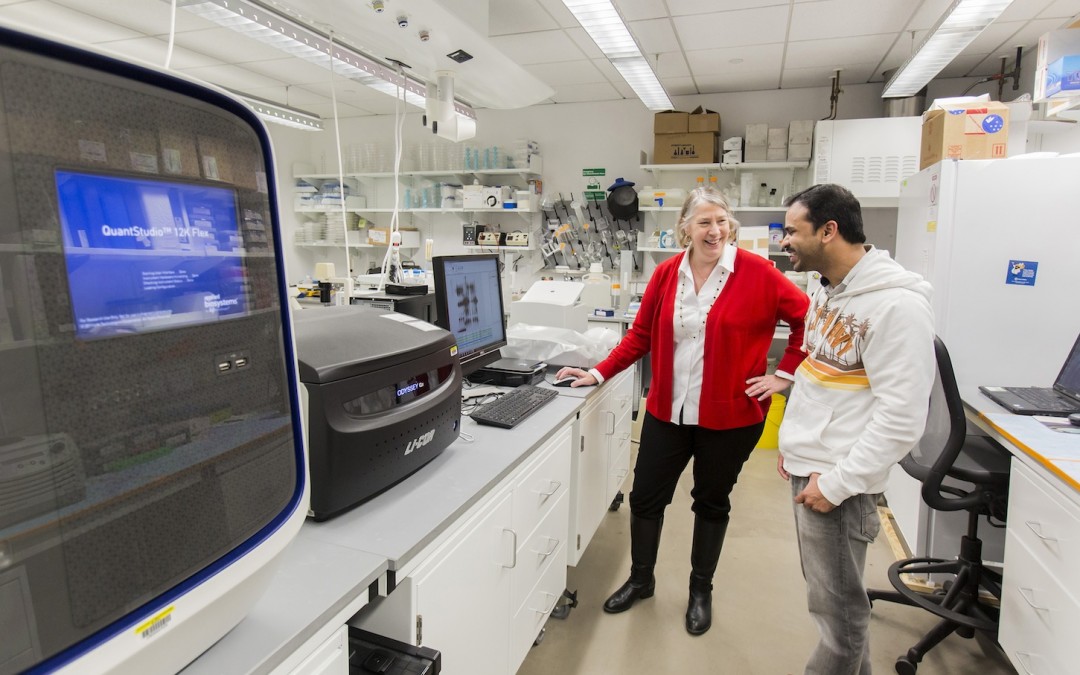With all of the technical resources available in the Kendall Square area, why do Cambridge-based Platelet BioGenesis scientists travel to the UMass Boston campus one day per week to use the animal facility and confocal microscope?
According to Lea Beaulieu, Platelet’s Associate Director:
“We needed a facility that has the equipment to do our animal experiments that was located in Boston, has knowledgeable personnel, and has a good relationship with the various regulatory agencies – all at a fair price. The UMass Boston facility has all those things. They want to help people meet their goals and succeed. We maintain our protocols there for these reasons and will continue to as we expand.”
Startups in research heavy fields scramble to find the high-powered microscopes or advanced fabrication equipment available to use on an hourly or daily basis since they must stretch their funds to prove out their technologies. Universities are starting to meet their needs.
The Engine, the MIT sponsored venture fund and incubator opened in 2017, is creating the Engine Room, a network of mission-critical resources throughout Eastern Massachusetts for its startup entrepreneurs. “We want to ensure the teams we support have access to the resources they need to deliver on their dreams with efficiency.”
Going even further, in 2018, UMass, the third-largest research university in Massachusetts with $670 million in research expenditures, announced an Innovation Voucher Program. Any small and medium-sized business headquartered in Massachusetts, whether or not affiliated with the university, is eligible to use over 90 collections of advanced instruments across the five-campus UMass system.
The state of Massachusetts provided $2 million worth of funding for vouchers (another $2 million was added for 2019). This will allow businesses with 10 or less employees to use the facilities at a 75 percent reduced cost, while those with 50 or less employees will be able to use the facilities at a 50 percent reduction. In 2018, 90 project vouchers worth $1,243,276 were awarded.
With these state incentives, startups can use the core facilities to develop prototypes and test new devices at a lower cost. Similarly, small established companies, especially manufacturers, can create prototypes to bid on contracts without having to make large investments beforehand.
Boston-based Silicon Therapeutics is using an NMR at UMass Amherst for data collection and analysis. Cambridge-based Lysosomal Therapeutics is using a core facility at UMass Lowel for RNA-seq analysis. And Newton-based Orionis Bioscience, Inc. is using the Mass Spectrometry facility at the UMass Medical School.
According to Uzma Alam, chief scientific officer at Boston-based Fluid-Screen:
“The voucher program has been great for us. Specifically, the UMass Boston fabrication core provides three different 3D printing technologies. Having access to this equipment has allowed us to accelerate iteration cycles, increase the quality of our designs, and reduce outsourcing costs.”
Innovation Voucher Program champion Robert DeLeo, Massachusetts House Speaker, said when the program was announced: “Not only does the program give businesses a competitive edge, it also challenges students to … connect with companies looking for new employees.” That’s been the case with Fluid-Screen, whose engineers field dozens of questions from students.
There’s another advantage for universities which have made significant investments in research facilities and infrastructure that they must sustain. The partnership with companies helps share some of the financial burden. With careful management, it can be a win-win.
Learn about the core facilities at UMass, and apply for the Innovation Voucher Program here. A detailed list of equipment and expertise at UMass Boston is here.

